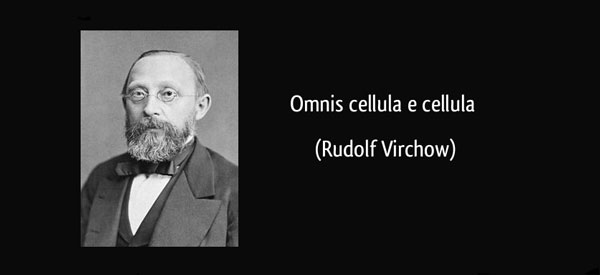A Moral Understanding of Public Health
(click to tweet)
Virchow's triad is named after the eminent German physician Rudolf Virchow (1821-1902).
It describes the three broad categories of factors that are thought to contribute to thrombosis.
- Hypercoagulability
- Hemodynamic changes (stasis, turbulence)
- Endothelial injury/dysfunction
But, in my opinion Virschows most important contribution to medicine had nothing to do with three factors contributing to thrombosis but, more importantly, his fight to create a moral understanding of public health.
Compared with other historical figures in medicine, such as Pasteur or Schweitzer or Florence Nightingale, Virchow isn’t very well-known.
Only one full-length biography of him exists. Yet he was, as one commentator writes, “the principal architect of the foundations of scientific medicine,” the first to propose that the basic units of biological life were self-reproducing cells, and that the study of disease should focus on changes in the cell.
Virchow Made Important Medical Contributions
- In oncology and parasitology
- He coined at least fifty medical terms still in use today
- He defined the pathophysiology of a host of diseases, including trichinosis
- He led a successful campaign for compulsory meat inspection in Germany.
- He designed a sewage system for Berlin that transformed it from a fetid sty into one of Europe’s healthiest cities.
- He founded a nursing school and hospitals.
- He was a practicing archaeologist and played an instrumental role in Heinrich Schliemann’s excavations of Troy.
- He helped to define the field of medical anthropology.
He was a physician and a teacher and a practicing politician, so nettlesome in opposition to Germany’s imperial ambitions that Bismarck once challenged him to a duel.
Virchow published more than two thousand papers and dozens of books.
Virchow Made Important Social Contributions
When he was only twenty-six, the German government sent Virchow to Upper Silesia to report on an epidemic of what was then termed famine fever, now called relapsing fever.
Virchow found a region impoverished by absentee landlordism, where the people, mainly Polish, lived principally on potatoes and vodka and suffered from endemic malaria and dysentery.
In his report to the German government, he wrote that abysmal social conditions, which the government had fostered and done nothing to relieve, had caused the epidemic. This was forty years before medical science identified all the biological sources of relapsing fever—its vector is the louse—but subsequent discoveries would show that Virchow was right.
"Epidemics of the illness usually occur after social upheavals, in the ensuing overcrowding, poor hygiene, and malnutrition."
In his report, Virchow expressed a fundamental law of epidemiology:
“If disease is an expression of individual life under unfavorable conditions, then epidemics must be indicative of mass disturbances of mass life.”
His prescription for curing Upper Silesia was
“full and unlimited democracy.”
This meant, among other things, establishing Polish as the official language, taxing the rich instead of the poor, getting the church out of the business of government, building roads, reopening orphanages, investing in agriculture.
The government of course fired him.
Virchow would write,
“My politics were those of prophylaxis, my opponents preferred those of palliation.”
Virschow Had a Knack for Aphorism
“Medicine is a social science, and politics is nothing but medicine on a large scale.”
“It is the curse of humanity that it learns to tolerate even the most horrible situations by habituation.” – click to tweet
“Medical education does not exist to provide students with a way of making a living, but to ensure the health of the community.”
“The physicians are the natural attorneys of the poor, and the social problems should largely be solved by them.”
Virchow Had a Comprehensive Vision
Virschow's Triad:
- Pathology
- Social medicine
- Politics
A triad which we would best regard as a formula for all good medicine.
And what is the meaning of the saying in the photo above: omnis cellula e cellula?
Every cell originates from another existing cell like it - Words to Live By!
* Please read the book "Mountains Beyond Mountains" on which this blog post was inspired!
















Leave a Reply